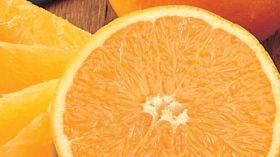
Seald Sweet International has added Uruguay to its rapidly expanding citrus import deal. Here, chief executive Mayda Sotomayor and marketing director Kim Flores explain why the South American country will complement the marketer’s counter seasonal programmes.
Firstly, can you tell me what you're planning for your first full season out of Uruguay? What are the key varieties you plan to ship?
Mayda Sotomayor: The quality of citrus is outstanding and the availability of certain commodities nicely complements existing summer citrus programmes, which enables us to continue building the category. For example, the Salustiana Navel from Uruguay has fantastic exterior appearance and excellent interior eating quality. Also, many Uruguayan growers have planted patented and preferred mandarin varieties which have grown tremendously in popularity among US consumers and are considered the growth commodity in the citrus category.

Will your Uruguayan citrus all be grown exclusively on the company'sfarms or are you also planning to handle production from other growers?
MS: In addition to our own production within the Univeg group in Uruguay, we have been working with smaller independent producers for some time and are offering these growers a plan for entering the US market.
How important do you see the US market eventually becoming for Uruguay? In light of the fact that the country recently lost its entitlement to special preference duties in the EU market, do you think the US will become as significant as Europe in the medium- to long-term?
MS: Yes, the US market is very important for Uruguay. The focus on this market will be on superior quality but it will also be important for Uruguay to have established channels with other markets for product which cannot meet US standards for premium grade product.
Logistically, do you foresee all shipments from Uruguay landing in Philadelphia or are you also planning to import via Miami?
MS: The majority of our product will continue to arrive in the northeast ports where our imports logistics and packing facility is located. Citrus from Uruguay is not yet admissible into the Port of Miami but once that opens, we plan to bring product in based on programmes which are in place.
What can you tell me about your planned Australian programmes for 2014?
MS: We are currently working on some import programmes but they are still tentative at this time.
Are you handling, or do you plan to handle, any citrus from Peru this year? How do you see this country's burgeoning citrus export industry fitting in with other regional suppliers?
MS: Yes, we will continue to work with our network of growers in Peru, including those within the Univeg Group.
 How do you see the US market for summer citrus developing in the coming few years?
How do you see the US market for summer citrus developing in the coming few years?
Kim Flores: The US summer citrus market continues to grow and based on domestic season consumption rates, there is still room for more growth. We continue to work with our growers to gradually expand the market at a rate that consumers respond to positively.
What is the market situation right now for citrus? Has the shortage in domestic production caused by the California freeze created additional opportunities for Spain and Morocco?
MS: Yes, the freeze has impacted the overall domestic volume and we have been able to fill those gaps with supply from long-standing relationships we have with our growers in Spain and Morocco.
Finally, as demand for easy peelers continues to soar among US consumers, do you think there is room on the market for a third brand to rival Cuties and Wonderful Halos?
KF: The marketing for Cuties and Wonderful Halos has been good for the industry. We have watched the easy peeler category grow from infancy in 1999 and were part of this growth from the beginning of the summer citrus and Spanish clementine programmes. The marketing and advertising has created heightened consumer awareness of this category and continues to foster more growth. We are excited to be a part of this especially since most of our growers have been a part of this growth with us for well over a decade.



